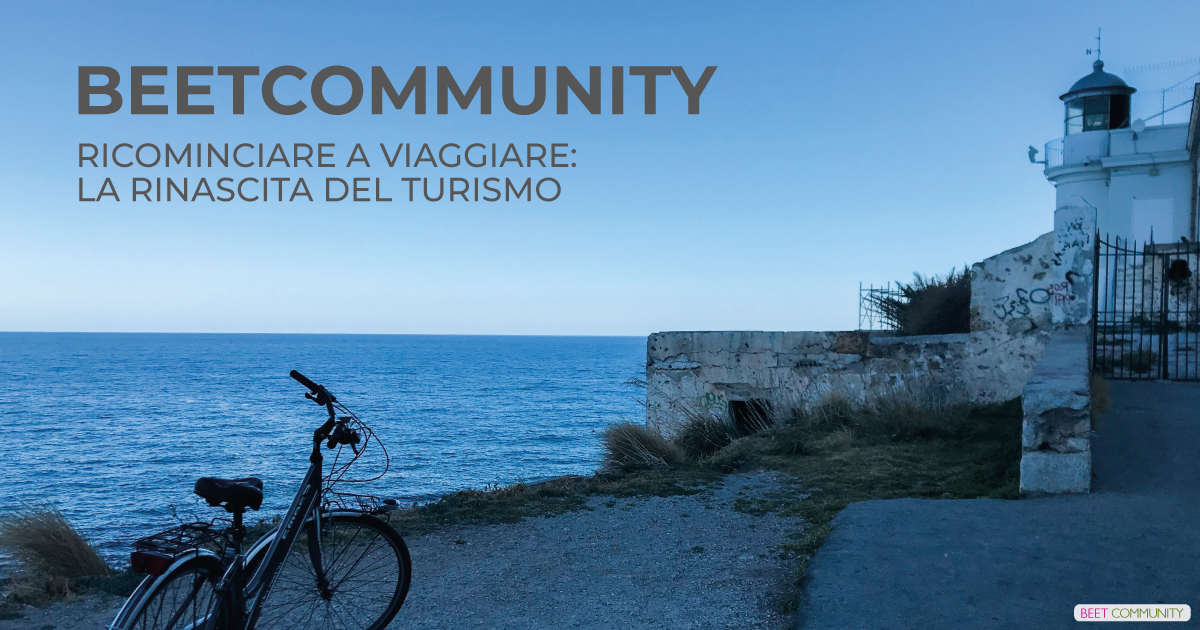Can we start traveling again? Surely many can’t wait. Tourism can begin to revive, perhaps also taking on new and different forms.

Can we start traveling again? Surely many can’t wait. Tourism can begin to revive, perhaps also taking on new and different forms.
A million-dollar question:
when will we be able to start traveling again? Will tourism be able to start to revive? The answer is not simple. Covid-19 has tragically affected not only people’s health, but has also had clear repercussions on the economy and on daily life itself.
Among the hardest-hit sectors, tourism is, unfortunately, at the forefront.
Before the pandemic, the travel sector was one of the most important, representing 10% of global GDP and employing over 320 million people. Now, however, according to McKinsey estimates, air traffic and spending in the tourism sector will only start returning to pre-pandemic levels from 2023 onwards. On one hand, these forecasts are due to the inevitable decrease in financial resources, and on the other hand, they’re due to a widespread feeling of insecurity in traveling.
The situation in the tourism sector
However, despite the bleak forecasts, analyzing Google search trends, it seems that
people want to start traveling again as before, provided there are safe conditions. Google data indeed tells us that
searches like “where to travel” and “can I travel” have increased exponentially, reaching some of the highest search rates. So maybe
tourism can really start to revive!
Moreover, it seems to be emerging that most people are looking for information about
leisure and personal travel, mostly outdoors and with a nature-based theme, as also confirmed by the World Tourism and Travel Council (WTTC) report.
The
future of the travel sector thus seems oriented towards a decrease in travel for work reasons and an increase in
“pure” tourism.
Another study conducted by Google and Kantar suggests that in the tourism sector right now, people matter more than destinations. What does this mean? It means that people are now more interested in
returning to travel to reconnect with their loved ones, rather than simply for the
pleasure of discovering new places. After all, this data is not surprising given the forced separation from people—and thus from human contact—that Covid has imposed on us.
But the research also reveals another interesting insight: many feel the desire to take a break from the pandemic and see travel, long forbidden or extremely limited, as an escape from a daily life full of restrictions.
Even if these changes in interests, needs, and desires cannot immediately be accompanied by actual
growth in tourism and the tourism economy—because many people still don’t feel safe traveling and because limitations and restrictions keep changing constantly from country to country—there might be
solutions that could revive the tourism sector right away and that we want to be the voice for.
No longer traveling for work, but working while traveling
It’s good to start by taking stock of the
business travel sector.
Even in this area, the situation during the pandemic has not been rosy at all. Indeed, although business travel is driven by necessity rather than personal desire, companies have had to
minimize business trips for their employees; the result has been that in the last year and a half
business trips have been practically halved. So, while the economic flow generated by business trips hasn’t stopped entirely, it has certainly decreased and will likely continue to do so.
The trend is actually to make
smart working the main working mode, learning to carry out and complete any activity remotely, making business trips less and less necessary.
But there is a flip side.
Business trips often brought opportunities to visit relatives, friends, distant partners, or simply to explore new places.
Now that smart working has become the most widespread way of working—and seems likely to remain so post-emergency—these opportunities may disappear, causing not only inconvenience for those who used to take advantage of them, but also for those who rely on the tourism flow of professionals for their income.
You’re probably thinking: “but if this is the case, then there’s no solution!”. Well, in our opinion, the answer lies in
starting to approach work life from a new perspective.
The pandemic has indeed shown us that
to work well, you don’t necessarily have to be tied to one single place, whether it’s your own city, your office, or the company’s headquarters.
Many professions—especially those related to digital work but not only—have the huge advantage of being able to be carried out anywhere. The
birth and growth of the so-called digital nomads in the last five years shows us this: a life of travel, freedom, sustainability, and above all personal well-being and satisfaction.
If the future of work is smart working, then the
future of travel can be about working while traveling: every moment can be the right one to visit friends living in another country, family members you haven’t seen in a long time, or simply to enjoy milder temperatures elsewhere when it’s winter in your own continent.
It doesn’t take much to start working as a digital nomad, mostly just a laptop and a good Wi-Fi connection to hook up to, but you can also
easily find a nice coworking space to rent a fully-equipped workstation. And if you’re also looking for a place to stay for a few days, weeks, or months, there are plenty of coliving spaces now all over the world.
Our Coliving was the first in Sicily, and those who came to visit us didn’t want to leave. See for yourself! But if you don’t believe it (we understand!) and if you’d like, you can read
the reviews people left us.
If you want to
start traveling again and help revive tourism, maybe even working while traveling, we’re waiting for you soon. It’s not always summer, but almost!
